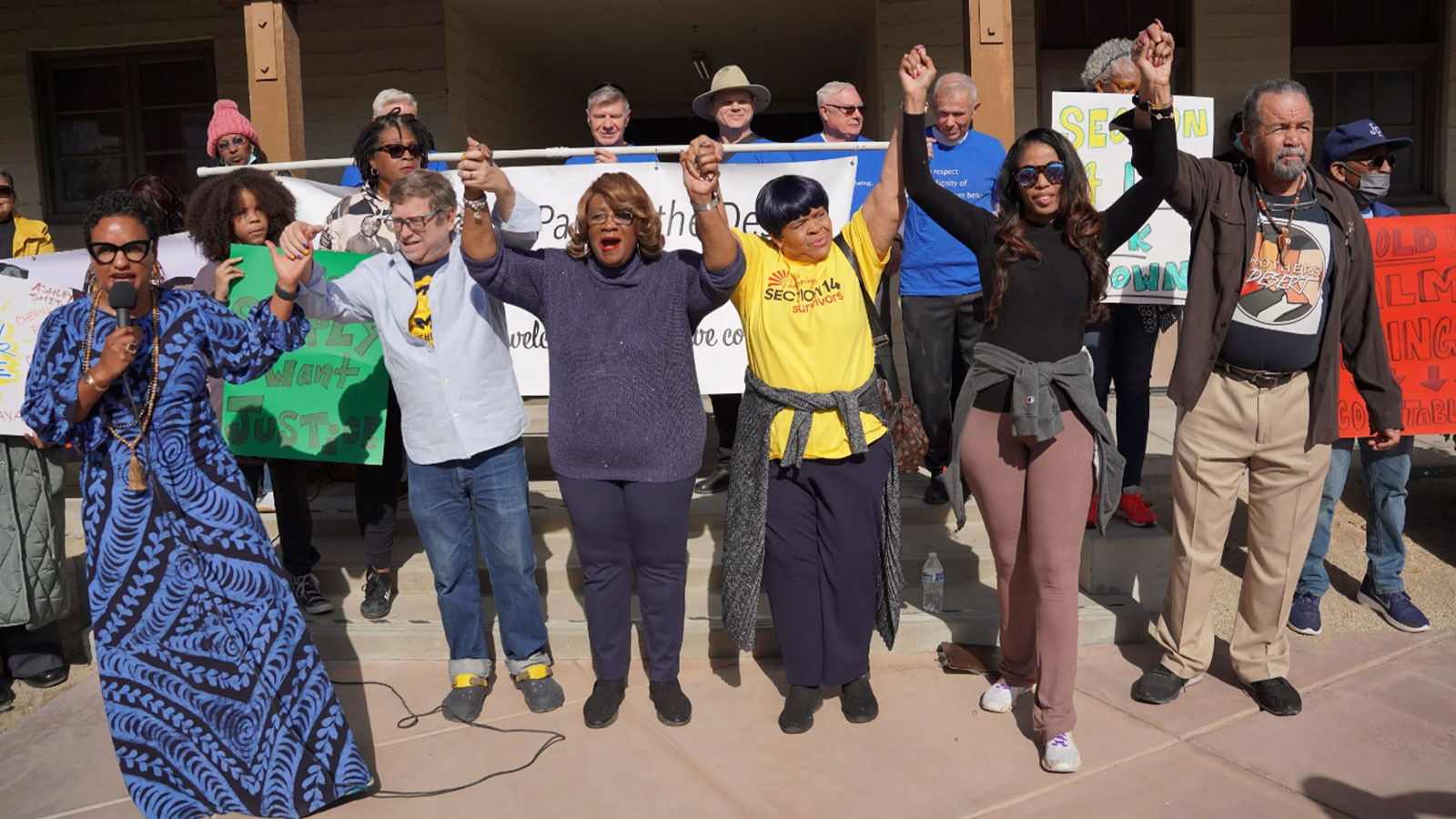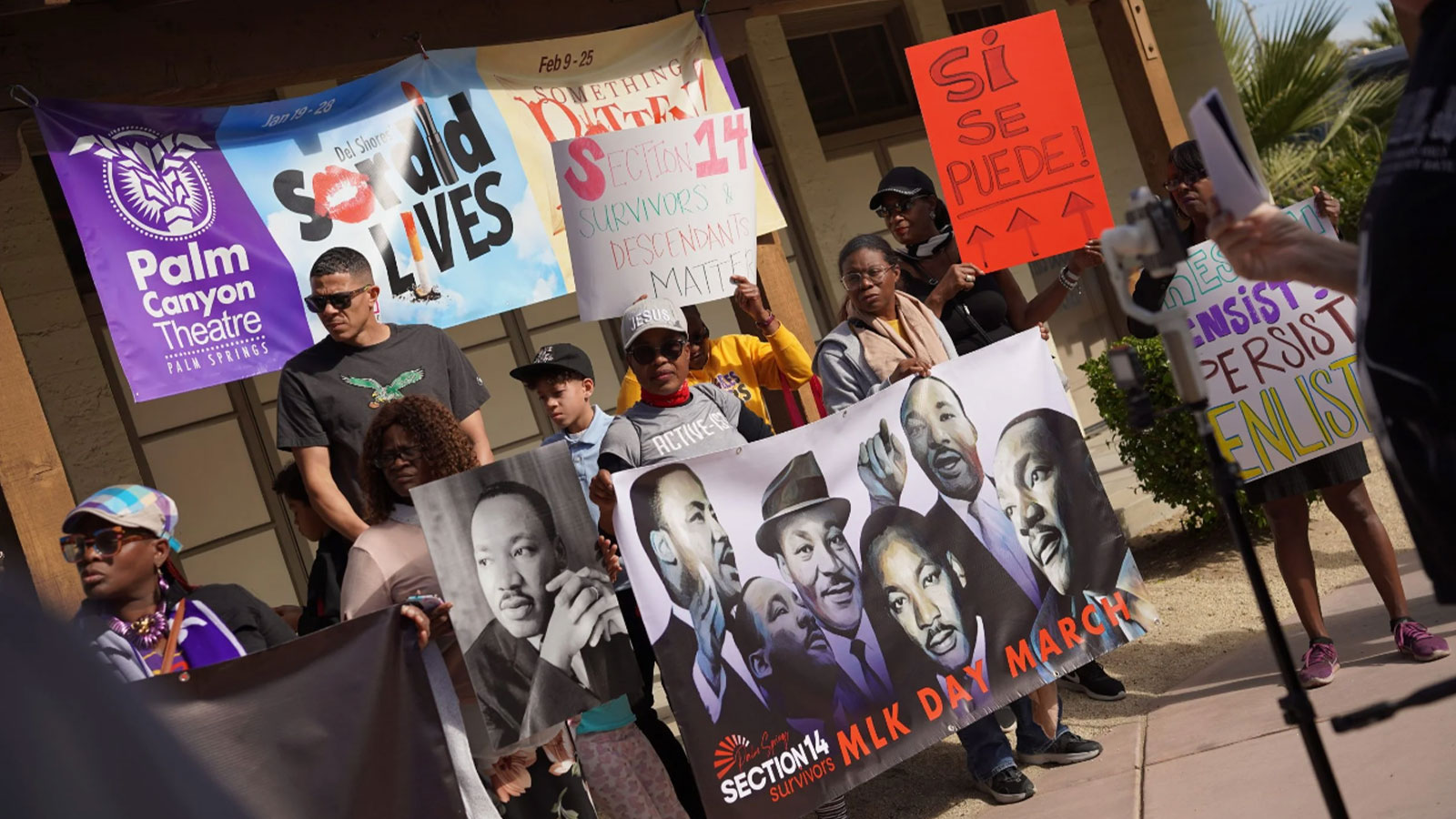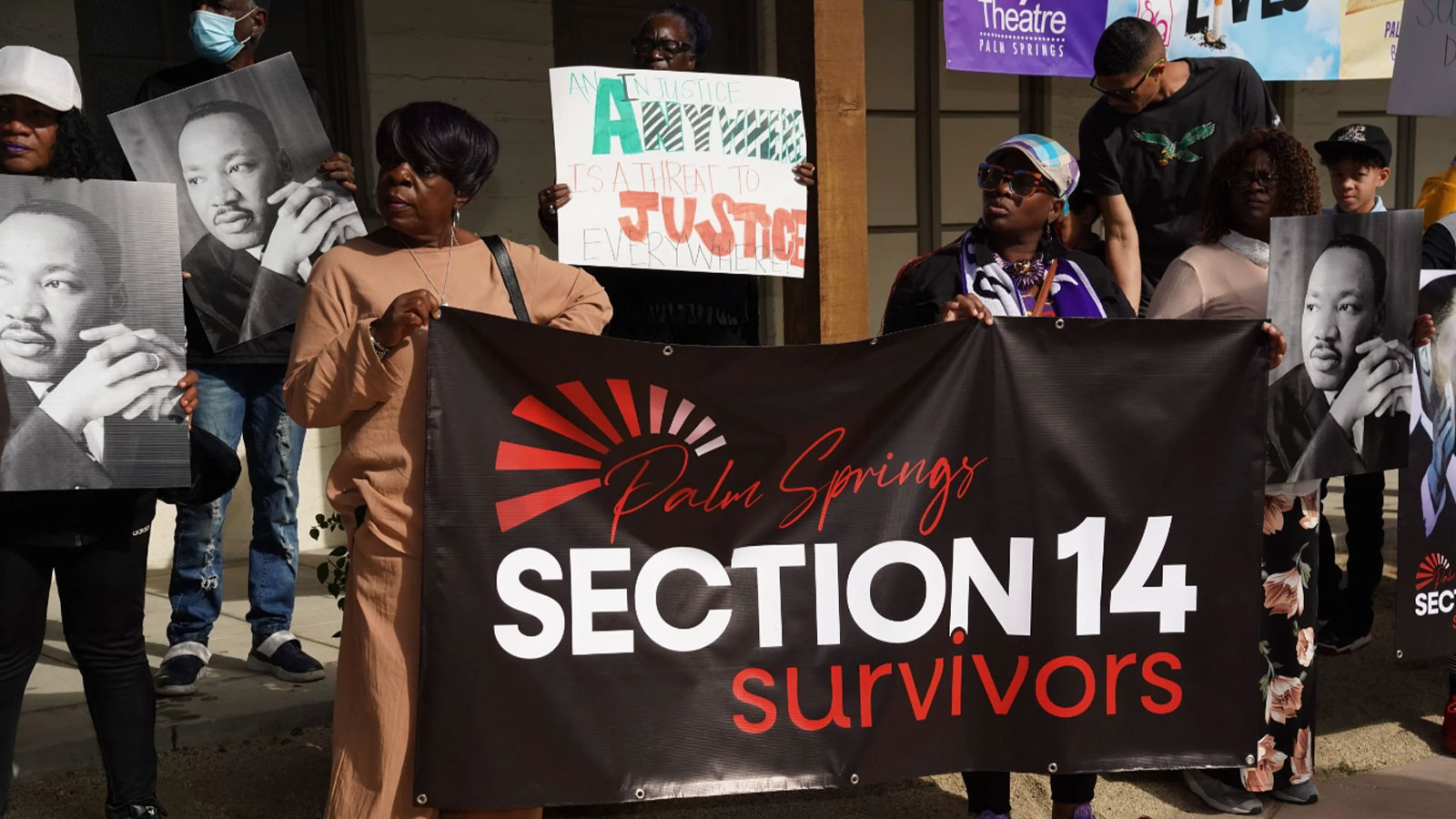A year after announcing plans to seek a reparations consultant and create plans for the section 14 survivors, attorney Areva Martin says the city voted no and her clients have received nothing.
In Palm Springs, California, survivors and descendants of the Section 14 community continue to fight for reparatory justice. This week, during the annual national observance of Martin Luther King, Jr. Day, Palm Springs Section 14 Survivors celebrated the civil rights icon’s legacy of equality. They held a symbolic rally and march as they continue to raise awareness of their stories and fight for justice.
The city forcibly displaced Black and Latino families during the 1950s and 60s to build luxury hotels, shops, and other commercial developments. The city bulldozed or burned down their homes as well as personal possessions in order to do this. A state investigation described what took place in the community as a “city-engineered holocaust.”
This destruction not only damaged properties but also caused emotional and racial trauma, wiped away the community’s political power, and impacted the ability to obtain generational wealth.

Photo: Diamond Dust Photography
Survivors are seeking $2 billion in reparations based on current values of the homes and property that were lost, a calculation made by economist Dr. Julianne Malveaux. They are also seeking a fund that would provide scholarships and grants to Section 14 Survivors to attend college, start small businesses, or obtain home loans and to create a center for racial and cultural healing center.
Although the City of Palm Springs formally apologized for its role in the devastation of this community and announced plans to hire a reparations consultant to develop a plan and negotiate a settlement, counsel for these families known as the Palm Springs Section 14 Survivors says that negotiations are at a standstill.
“When the city issued its public apology, the city council also directed its city staff to meet with the families and work out a resolution. So, this seemed like the best way to move forward and work out a resolution. But all of a sudden, unbeknownst to anyone, that vote was a no vote for that reparations group,” said civil rights attorney Areva Martin, who is representing the Section 14 Survivors.
Last April, the Palm Springs City Council would not approve a consultant agreement to develop Section 14 reparations programs. In a 3-2 vote, the council struck down a proposed 12-month contract with Columbia University Trustees. The council cited concerns that “that an advocacy group lacks the expertise and objectivity to deliver an objective historic analysis.”
“We went back and forth several times. There were several presentations made to the board about our recommendations for settlement, but essentially, we got nothing,” Martin says ESSENCE.
Instead of a plan for a way forward for adequate reparatory justice that speaks to the asks of the former residents of this devastated community, Martin says The City Of Palm Springs provided statements about being in the process of building low-income housing in the north end of Palm Springs, which is known as the part of the city where most African American families live.
“Of course, that was completely unacceptable to us because the need for low-income housing or building low-income housing is a matter of public policy. It is in no way a response to or doesn’t constitute any form of restitution to the clients who had suffered the harm of the burning out and demolition of their homes,” Martin told ESSENCE.
According to Martin, the mission of these families is not just about monetary compensation; it’s about the acknowledgment of the past, community healing, and establishing restorative measures to see to it that history doesn’t repeat itself.

Photo: Diamond Dust Photography
Despite the uncertainty, Martin shared that the Section 14 Survivors continue to press forward and tell their stories.
They started a “Know Before You Go” public awareness campaign featuring a series of billboards and a petition to make the 14 million tourists that come into Palm Springs aware of what took place and their current cause.
“We decided that we needed to continue our campaign of telling our stories because we found that the way we had been able even to drive the city to the table was by changing the narrative, shifting the narrative, and allowing our survivors and their descendants to take control of the story,” she said.
As these survivors continue to share their stories, Martin says the expectation is that the City of Palm Springs will come back to the negotiating table, but this time with an alternative to a reparations consultant so that there is not such a long wait time before progress on the matter can begin.
“My clients love Palm Springs; some of them are third generation. They love the city; they’re not trying to harm the city; they are trying to move the city forward,” said Martin.
“They want justice; they want what they are entitled to in terms of compensation. They want to be made whole; they want to be given the opportunity to build the wealth that was stripped away from them and that other families in that community that don’t look like them were given every opportunity to build. And on top of all of that, they want to help the city grow economically; they want to help the city build those kinds of institutions and experiences that will attract additional money into the city,” she added.
Source: Essence
Featured image: Photo: Diamond Dust Photography


